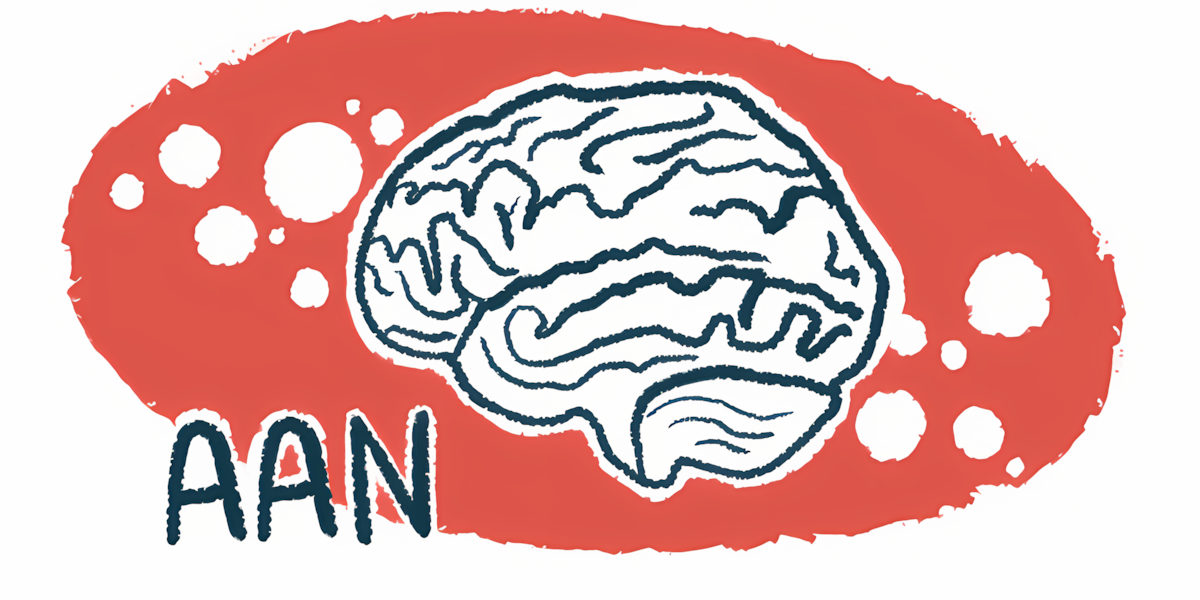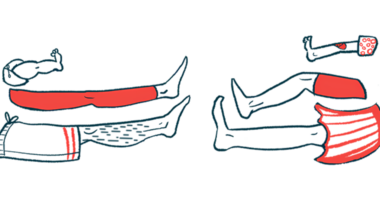AAN 2025: Vyalev has good long-term safety profile in Parkinson’s
Patients saw sustained motor symptom control in Phase 3 trial extension

Vyalev (foscarbidopa and foslevodopa) demonstrated a favorable long-term safety and tolerability profile, along with sustained motor symptom control, in Parkinson’s disease patients who participated in the extension part of a Phase 3 trial (NCT03781167).
Results from nearly two years of the extension study (NCT04379050) showed a safety profile generally consistent with that observed in the parent study, although with some differences in falls and injection-site reaction frequency. Patients consistently experienced sustained reductions in off times and improvements in their quality of life.
“These findings support the use of [Vyalev] as an effective long term strategy to manage motor symptoms in patients with advanced Parkinson’s.” the researchers wrote in a poster, “Sustained Long-term Safety and Tolerability of Foslevodopa/Foscarbidopa in Parkinson’s Disease: 96-week Primary Treatment Period Results from an Ongoing Open-label Extension Study,” presented at the American Academy of Neurology (AAN) annual meeting, held April 5-9 in San Diego and online.
Parkinson’s disease is caused by the dysfunction and loss of dopaminergic neurons, nerve cells responsible for producing dopamine, a key chemical messenger that regulates motor control. Levodopa remains a cornerstone of treatment, providing a precursor molecule that the brain can convert into dopamine. It is typically administered alongside carbidopa, which helps prevent levodopa from being converted into dopamine before it reaches the brain.
Long-term used of levodopa may be associated with dyskinesia (sudden and uncontrolled movements) and off episodes, periods of time in between doses when symptoms are not fully controlled. Periods in which symptoms are well controlled are called on periods.
Safety profile update
Vyalev is a soluble formulation of foscarbidopa and foslevodopa, prodrug versions of levodopa and carbidopa that are converted into active molecules inside the body. It is given via a subcutaneous (under-the-skin) continuous infusion to people with advanced Parkinson’s in whom motor symptoms are not adequately controlled with oral medications.
In the parent Phase 3 trial, one year of Vyalev treatment reduced average daily off time by 3.5 hours per day (a 59% decrease) and increased on time by 3.8 hours per day (a 41% increase).
Of those who completed the trial, 129 (mean age 63.1, 63.6% men) enrolled in the open-label extension study, which collected long-term data on the safety and efficacy of Vyalev for 96 weeks (nearly two years), with an optional extension period that is ongoing. Doses ranged from 600 mg to 4,250 mg of levodopa equivalent doses in 24 hours.
The interim analysis presented at the conference showed that after 96 weeks, Vyalev’s safety was generally similar to that reported in the parent study, with 92.2% of the patients experiencing at least one adverse event, leading to treatment discontinuation in 10.1%.
Falls were more frequent in the extension study than in the parent trial (32.6% vs. 16.8%), while patients less frequently experienced infusion site reactions like skin redness (22.5% vs. 52%) and skin infection (18.6% vs. 23%). Hallucinations were similar in frequency in both studies, affecting 17.1% of patients in the extension study, with the majority being mild or moderate.
Reductions in off time and improvements in on time without dyskinesia were sustained for up to 3.5 years of treatment. By week 96 of the extension study, patients had 3.1 fewer hours per day of off time and gained 3.3 hours per day of on time without troublesome dyskinesia compared to the start of the original study.
Declines in morning akinesia — difficulty moving or initiating movement upon waking — and improvements in health status and quality of life observed in the parent study, were sustained through week 100 of the open-label extension.
“Results from this [open-label extension study] combined with the previous … study show a maintained a favorable risk/benefit profile of [Vyalev] through at least 148 weeks of treatment,” the researchers wrote.







